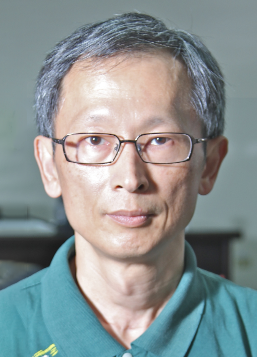

题目:Smart Energy Management for Classroom Environment
时间:2020年1月13日 10:00
地点:中意绿色能源楼
报告人:王啟川 教授 (Chiao Tung University, Taiwan)
邀请人:王如竹 教授、胡斌 助理研究员(制冷与低温工程研究所)
Biography
Chi-Chuan Wang is currently a distinguished professor in the Departm ent of Mechanical Engineering, Chiao Tung University, Hsinchu, Taiwan. He received his B.S., M.S., and Ph.D. from the Department of Mechanical Engineering of Chiao Tung University, Hsinchu, Taiwan during 1978-1989. He then joined the Energy and Environment Research Lab., Industrial Technology Research Institute (ITRI), Hsinchu, Taiwan for about twenty years (1989.10-2010.1) conducting researches related to enhanced heat transfer, electronic cooling, multiphase system, micro-scale heat transfer, membrane separation, and HVAC&R technology. He joined Chiao Tung University in 2010 as a professor, working on all aspects of thermal energy systems and heat transfer processes. His editorial services include a regional editor of the Journal of Enhanced Heat Transfer, an associate editor of Heat Transfer Engineering, and an editor of Int. J. of Air-conditioning and Refrigeration. He has been authors or co-authors of more than 340 international journal articles with accumulated google citations above 14500, and an h-index of 59. He is also a co-inventor of 30 Taiwan Invent Patents and 10 US Patents, and authored three books in association with heat exchanger design and heat transfer. He is also an elected Fellow of ASME and ASHRAE. He was a member of the Assembly of the World Conference (AWC) on Experimental Heat Transfer, Fluid Mechanics, and Thermodynamics (2009-2017) and a member of the scientific council of the International Centre for Heat and Mass Transfer (2017~2019).
ent of Mechanical Engineering, Chiao Tung University, Hsinchu, Taiwan. He received his B.S., M.S., and Ph.D. from the Department of Mechanical Engineering of Chiao Tung University, Hsinchu, Taiwan during 1978-1989. He then joined the Energy and Environment Research Lab., Industrial Technology Research Institute (ITRI), Hsinchu, Taiwan for about twenty years (1989.10-2010.1) conducting researches related to enhanced heat transfer, electronic cooling, multiphase system, micro-scale heat transfer, membrane separation, and HVAC&R technology. He joined Chiao Tung University in 2010 as a professor, working on all aspects of thermal energy systems and heat transfer processes. His editorial services include a regional editor of the Journal of Enhanced Heat Transfer, an associate editor of Heat Transfer Engineering, and an editor of Int. J. of Air-conditioning and Refrigeration. He has been authors or co-authors of more than 340 international journal articles with accumulated google citations above 14500, and an h-index of 59. He is also a co-inventor of 30 Taiwan Invent Patents and 10 US Patents, and authored three books in association with heat exchanger design and heat transfer. He is also an elected Fellow of ASME and ASHRAE. He was a member of the Assembly of the World Conference (AWC) on Experimental Heat Transfer, Fluid Mechanics, and Thermodynamics (2009-2017) and a member of the scientific council of the International Centre for Heat and Mass Transfer (2017~2019).
Abstract
Performance of an optimal indoor environment in a campus classroom containing up to 80 occupants subject to various conditions is summarized in this talk. The proposed AI agent can regulate and balance the needs for illuminance, thermal comfort, air quality, and energy consumption. By incorporating with Machine Learning (ML) and illumination algorithm in associated with IoT, wireless communication and adapted control, the optimal energy-saving, thermal comfort, and indoor air control in campus classroom can be achieved. The proposed agent is based on the Deep Q-Learning in reinforcement learning. Additionally, by using Video Image Detection (VID) to analyze the number of occupants and distribution to improve the further optimization. The AI agent can handle the complex interactions between indoor environment and occupants while minimizing energy consumption of the air-conditioning system and maintaining the thermal comfort of the occupants. The test results indicate that, by maintaining thermal comfort and air quality, when comparing with setting temperature at 25 degrees, the average energy-saving is 19%, the average CO2 concentration is decreased by 21.3%. When comparing with setting temperature at 26 degrees, the average energy-saving is 15%, the average CO2 concentration is decreased by 12.9%. To meet the demand illuminance standard, when comparing with the general cases (all luminaries are set at 100% level), the average energy-saving is 36.49%. When comparing with the minimum illuminance standard for all seats (all luminaries are set at 90% level), the average-energy saving is 32.02%. In summary of the operation, the total average energy-saving and CO2 reduction in a classroom are 20.8% and 17.1%, respectively.
